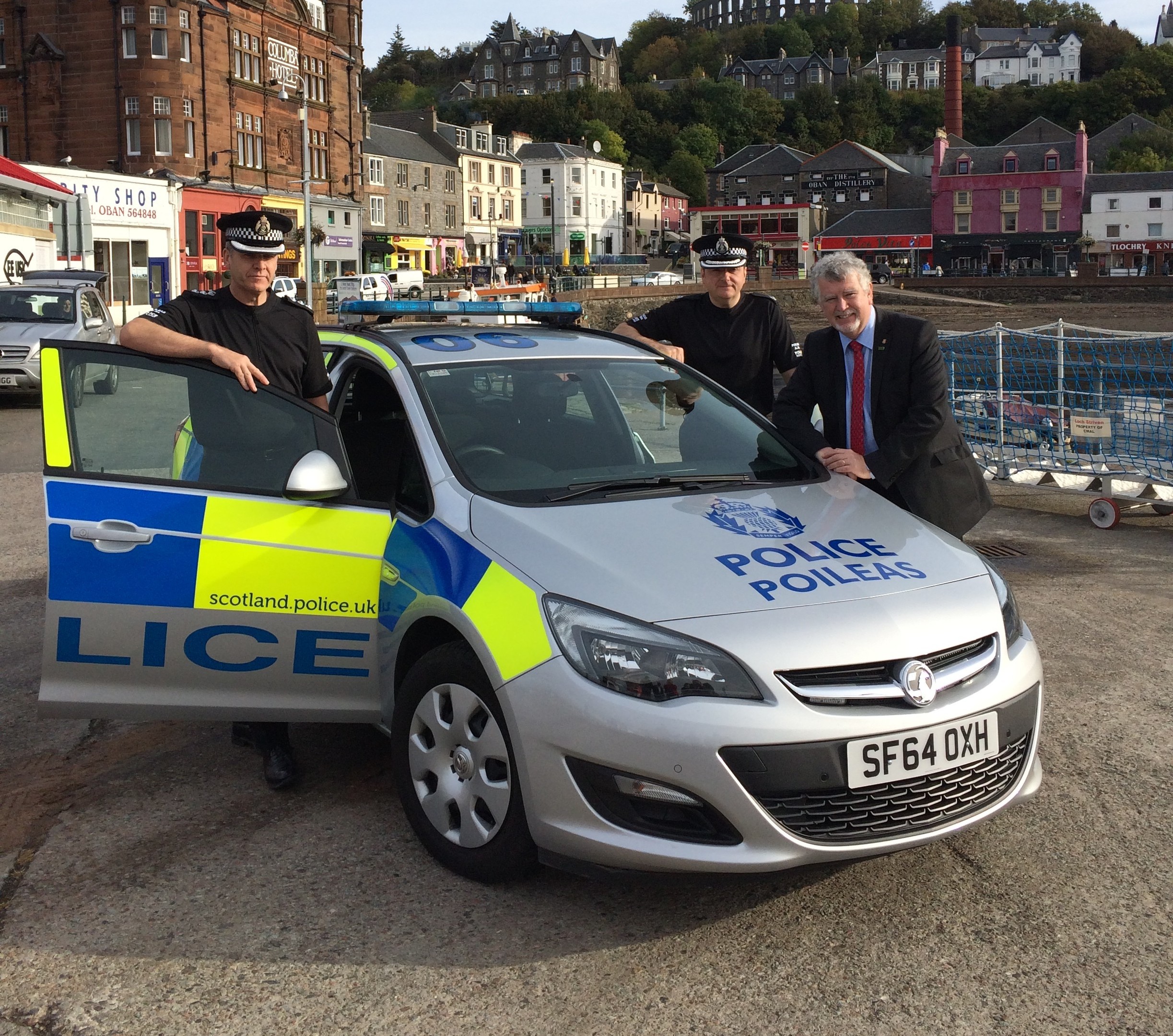Police have confirmed they will controversially use their Gaelic name and logo on officers’ uniforms and cars.
The force said the changes would be introduced over several years and would not cost any money.
The move, which delivers on legally-required Gaelic Language Plans, provoked criticism when a consultation on the plans was launched at the Royal National Mod in Oban last year.
Yesterday, Police Scotland and the Scottish Police Authority (SPA) confirmed the changes would go ahead from next year.
The Police Scotland corporate logo will be rendered bilingual as standard across the service and in its branded material, while the force pledged that there would be greater opportunities for the public to communicate with officers and the SPA in Gaelic.
They also said they would identify officers and staff who speak Gaelic, and those who wish to learn the language will be encouraged to do so, enabling more personnel to be involved in translation and production of materials.
Vehicles, signs and uniforms within much of the Highlands and Islands division already carry the “Poileas Alba” name, as does the force helicopter.
Changes to branding in other parts of the country will only take place when cars and uniforms require to be replaced.
Assistant Chief Constable Andrew Cowie said: “Following a successful public consultation, I am delighted the joint Police Scotland and Scottish Police Authority Gaelic Language Plan is being launched.
“The importance of upholding traditional and native languages cannot be underestimated and as a police service we recognise Gaelic as an important aspect of Scotland’s heritage.
“It also has a significant role to play in the overall wellbeing of communities and the country as a whole.”
But last night, a north-east MSP criticised the move and said it was “disrespectful” to impose the language on parts of the country where it is not widely spoken.
Ross Thomson said: “I’ve asked parliamentary questions and asked if the government would reconsider the legislation, and consider offering more flexibility to areas of the country where this is not widely spoken, like the north-east.
“It’s important to promote Gaelic but to have something so rigid is totally inappropriate.
“It’s disrespectful to the culture and heritage of the north-east of Scotland to force this down peoples’ throats when they don’t necessarily want it.”
SPA chief executive John Foley said: “Following a public consultation process, the plans launched today will deliver our commitments over the next five years on a cost-neutral basis given the financial challenges faced across the public sector.”
